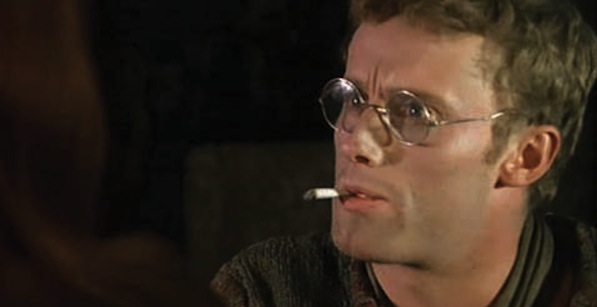Andrzej Wajda’s website offers a generous helping of information on virtually all of his films, including his own reflections on each feature. Here’s what he had to say about Landscape After Battle, which was based on Tadeusz Borowski‚Äôs work This Way for the Gas, Ladies and Gentlemen. In his comments Wajda reflects on his connection with Borowski’s writing, and offers a revealing glimpse at the kind of trouble his films experienced with state officials:
In 1939 prewar Poland disintegrated like a house of cards before our very eyes. Disillusionment with the old Poland contributed substantially to the attitudes of the postwar intelligentsia and facilitated, at least in the initial period, its close contacts with the new rulers. I believe that this is exactly why I understood Borowski’s bitter irony so well. I could easily imagine his short story as a part of my own biography. This is why, when the opportunity arose, I did everything to make a film based on the Battle of Grunwald…
Unfortunately, after the last shot, the beautiful period of creative struggle with the material provided by Borowski’s prose was over, and political complications around the film began. The first warning came when part of the material we had shot was confiscated by secret police agents active in the Polish film industry. They wanted to find on the screen the faces of Adam Michnik and Barbara Torunczyk who had been hired as extras by my assistant Andrzej Titkow without the consent of the film supervisors. Both dissidents had just been released from prison and they needed to earn a little money. A storm broke out. Luckily for us, the controllers did not manage to locate the “criminals”. I believe that Adam and Basia, both experienced conspirators, had enough reasons not to expose their faces to the camera. Adam Michnik remembers this incident somewhat differently. Nonetheless, Andrzej Titkow had to leave our crew.
This incident foreshadowed the black clouds gathering around our film. General Moczar had his people everywhere, and the editors of the weekly “Ekran” were totally subordinated to him. Nationalist communists indulged in manipulating the emotions related to national “sacred issues” and attacked our film. Our criticism of prewar Poland, born of a deep internal conflict, fell victim to empty patriotic slogans which Moczar suddenly began to defend.
The full text of Wajda’s reflections on Landscape After Battle can be found on his website.




